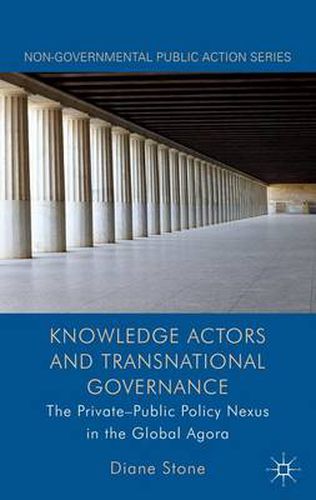Readings Newsletter
Become a Readings Member to make your shopping experience even easier.
Sign in or sign up for free!
You’re not far away from qualifying for FREE standard shipping within Australia
You’ve qualified for FREE standard shipping within Australia
The cart is loading…






This title is printed to order. This book may have been self-published. If so, we cannot guarantee the quality of the content. In the main most books will have gone through the editing process however some may not. We therefore suggest that you be aware of this before ordering this book. If in doubt check either the author or publisher’s details as we are unable to accept any returns unless they are faulty. Please contact us if you have any questions.
Diane Stone addresses the network alliances or partnerships of international organisations with knowledge organisations and networks. Moving beyond more common studies of industrial public-private partnerships, she addresses how, and why, international organisations and global policy actors need to incorporate ideas, expertise and scientific opinion into their ‘global programmes’. Rather than assuming that the encouragement for ‘evidence-informed policy’ in global and regional institutions of governance is an indisputable public good, she queries the influence of expert actors in the growing number of part-private or semi-public policy networks.
$9.00 standard shipping within Australia
FREE standard shipping within Australia for orders over $100.00
Express & International shipping calculated at checkout
This title is printed to order. This book may have been self-published. If so, we cannot guarantee the quality of the content. In the main most books will have gone through the editing process however some may not. We therefore suggest that you be aware of this before ordering this book. If in doubt check either the author or publisher’s details as we are unable to accept any returns unless they are faulty. Please contact us if you have any questions.
Diane Stone addresses the network alliances or partnerships of international organisations with knowledge organisations and networks. Moving beyond more common studies of industrial public-private partnerships, she addresses how, and why, international organisations and global policy actors need to incorporate ideas, expertise and scientific opinion into their ‘global programmes’. Rather than assuming that the encouragement for ‘evidence-informed policy’ in global and regional institutions of governance is an indisputable public good, she queries the influence of expert actors in the growing number of part-private or semi-public policy networks.